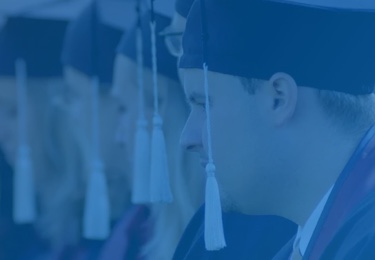PhD student / doctoral candidate in Physics, advanced X-ray and neutron scatteringVollpromotion
Englisch
Arbeitssprache
Tübingen
Standort
31. Dez. 2024
Bewerbungsende
schnellstmöglich
Antrittsdatum
Content Navigation
Überblick
Anzahl offener Stellen
2
Laufzeit
schnellstmöglich für 3 Jahre
Bewerbungsfrist endet am
31. Dez. 2024
Finanzierung
Ja
Art der Promotion
Vollpromotion
Arbeitssprache
Englisch
Erforderlicher Abschluss
- Diplom
- Master
Studienfelder
Chemie, Informatik, Physik, Experimentalphysik, Nanomaterialien, Nanotechnologie, Nanowissenschaften, organische Chemie, physikalische Chemie, makromolekulare Chemie, Nanochemie
Beschreibung
Beschreibung
The Soft Matter Physics Group at the University of Tübingen deals with the physics of molecular and biological materials using X-ray and neutron scattering. The main research areas are materials for photovoltaics (such as organic semiconductors (OSC) and organic-inorganic halide perovskites), complex nano-structured materials (inorganic nanoparticles in organic matrix), and proteins in solutions and at interfaces. For more information, visit our web page: https://www.soft-matter.uni-tuebingen.de/
We are currently looking for a PhD student to join our team and help us make exciting new advances in X-ray scattering techniques! You will have an opportunity to work on a variety of systems, including OSCs, perovskites, and biomolecules, as well as explore the cutting-edge field of neural networks and machine learning (ML) strategies for analyzing scattering data.
Your tasks
Depending on the selected track (sample preparation and characterization, X-ray scattering data analysis or development of ML-assisted data analysis approaches) or their combination, your tasks will include the following aspects.
- Preparation of samples (thin films of OSCs by thermal evaporation, perovskite thin films by spin-coating, biomolecules in solutions etc.)
- Characterization of the resulting samples by means of available lab techniques, including optical spectroscopy (UV-Vis, FTIR), dynamic light scattering (DLS), structural and dynamical investigations by means of advanced X-ray scattering methods: X-ray and neutron reflectivity (XRR/NR), Grazing-Incidence Small- and Wide-Angle X-ray Scattering (GISAXS/GIWAXS), Small-Angle X-ray scattering (SAXS), X-ray Photon Correlation Spectroscopy (XPCS) and many others
- Analysis of the collected data using modern approaches, including ML-based tools developed in the group
- Development of the ML-based tools for the analysis of the scattering data from different techniques
Independent of the project, you will also have an opportunity to:
- Participate in X-ray scattering experiments at world-leading large-scale X-ray facilities such as Deutsches Elektronen-Synchrotron DESY in Hamburg, European Synchrotron Radiation Facility ESRF in Grenoble and European X-ray Free Electron Laser EuXFEL in Schenefeld
- Present your scientific results at conferences and in publications
Requirements
- Master’s degree in Physics, Chemistry or Computer Science, or equivalent
- Interest in Physics, Biophysics, Chemistry or Machine Learning
- Good written and spoken English
- Ability to work both independently and in a team
- Programming skills (Python or MATLAB) and lab working experience are strong advantages
The university seeks to raise the number of women in research and teaching and therefore urges qualified women academics to apply for these positions. Equally qualified applicants with disabilities will be given preference in the hiring process. The university is committed to equal opportunities and diversity. It therefore takes individual situations into account and asks for relevant information. The employment will be handled by the central administration of the University of Tübingen.
Applications should be accompanied by a cover letter describing motivation, skills and any special achievements. Furthermore, a CV and a transcript of records should be added. The position is to be filled immediately. Please send your application in one PDF file to softmatter@ifap.uni-tuebingen.de
Erforderliche Dokumente
Erforderliche Dokumente
- Lebenslauf
- Zeugnisse, Zertifikate
- Motivationsschreiben
- Transkripte
- Publikationsliste
